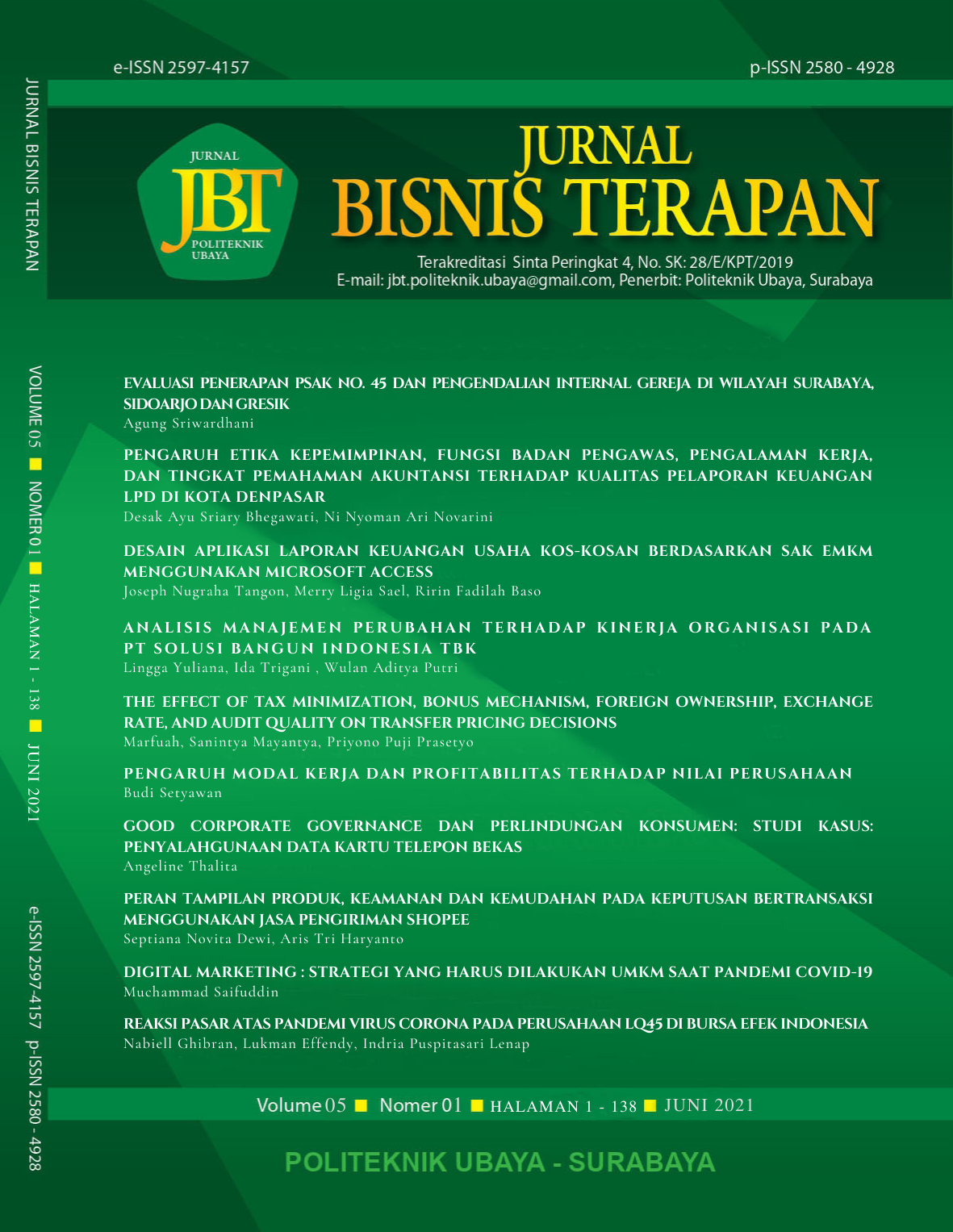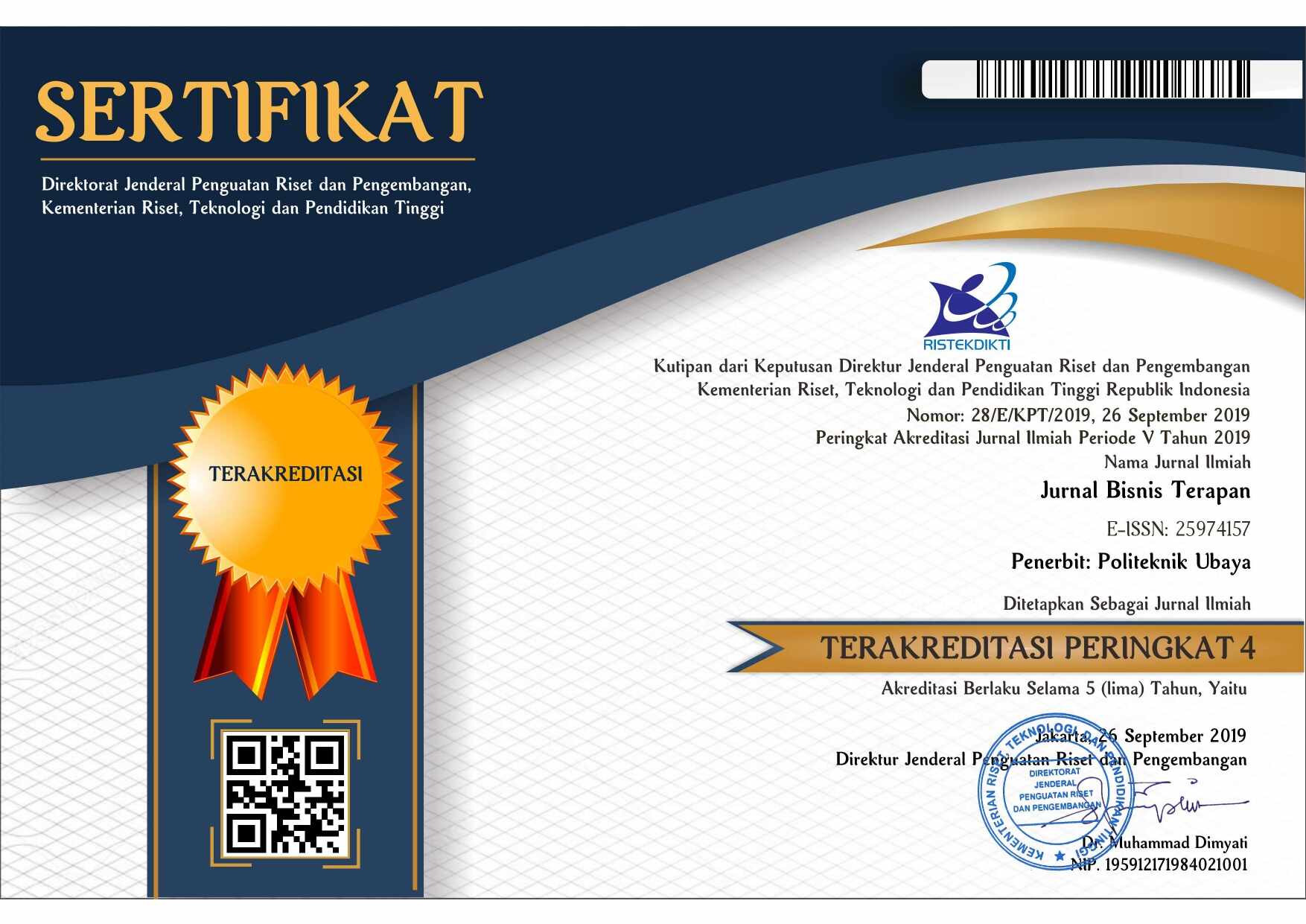GOOD CORPORATE GOVERNANCE DAN PERLINDUNGAN KONSUMEN: STUDI KASUS: PENYALAHGUNAAN DATA KARTU TELEPON BEKAS
 Abstract Views:
783 times
Abstract Views:
783 times
 PDF Downloads:
554 times
PDF Downloads:
554 times
Abstract
Abstract
This study aimed to investigate the extent of the application of the principles of Good Corporate Governance (GCG) and protection of personal data from the point of view of consumers in telecommunications service companies. The case study analyzed the misuse of used telephone card data in a telecommunications service company PT. Z. The empirical judicial method was used in this study. This legal research was carried out by examining documents (document studies), using 2 (two) approaches, the statute approach and the conceptual approach. Primary data were collected through surveys and interviews to prove the findings in the first stage. The results of the study, on the legal aspects showed that the legal protection for consumers as users of telecommunications services has not been fully implemented by PT. Z according to Law Number 8 of 1999 concerning Consumer Protection and Law Number 36 of 1999 concerning Telecommunications. Consumer perceptions indicate that PT. Z has not implemented GCG principles properly. Consumer responses to aspects of consumer personal data protection related to the above cases are also not good and tend to be detrimental to consumers. This research showed that the application of GCG principles is not optimal and has an impact on weak aspects of consumer protection. For the implementation of GCG in the future, PT. Z should have good intentions in running its business and provide correct, complete and clear information related to the products it trades, both spoken and written.
Keywords : Good corporate governance, consumer protection, personal data protection, telecommunication service
Downloads
References
Batubara, Hamdan Husein. 2016. “Penggunaan Google Form Sebagai Alat Penilaian Kinerja Dosen di Prodi PGMI Uniska Muhammad Arsyad Al Banjari”. Jurnal Pendidikan Dasar Islam, Vol. 8 No. 1:41.
Budhijanto, Danrivanto. 2014. “Peran Hukum Telekomunikasi Terhadap Implikasi Konvergensi Teknologi Informasi dan Komunikasi”. Jurnal Dinamika Hukum, Vol. 14, No. 1:135.
Kemkominfo. 2018. Analisis Industri Telekomunikasi Indonesia Untuk Mendukung Efisiensi. Puslitbang Sumber Daya, Perangkat, dan Penyelenggaraan Pos dan Informatika. Badan Penelitian dan Pengembangan SDM.
Khairandy, Ridwan. 2003. Itikad Baik Dalam Kebebasan Berkontrak. Jakarta: Program Pascasarjana, Fakultas Hukum Universitas Indonesia, cet 1:128.
Latumahina R., E. . 2014. “Aspek Hukum Perlindungan Data Pribadi di Dunia Maya”. Jurnal Gema Aktualita, Vol. 3, No. 2:16.
Lianto, Benny; Dachyar, Muhammad; dan Soemardi, Tresna Priyana. 2020. “Modelling the Continuous Innovation Capability Enablers in Indonesia’s Manufacturing Industry”. Journal of Modelling in Management:11.
Mansyur, Ali; Rahman, Irsan. 2015. “Penegakan Hukum Perlindungan Konsumen Sebagai Upaya Peningkatan Mutu Produksi Nasional”. Jurnal Pembaharuan Hukum. Volume II No. 1 Januari - April 2015:3.
Marzuki P., M. 2011. Penelitian Hukum. Jakarta: Kencana:93.
Mudashiru, A., A. O.; Bakare, Ibrahim; dan Ishmael, Omah. 2014. “Good Corporate Governance and Organisational Performance: An Empirical Analysis”. International Journal of Humanities and Social Science, Vol.4 No. 7:174.
Nugrahaningsih, Widi; Erlinawati, Mira. 2017. “Implementasi Undang-Undang Nomor 8 Tahun 1999 Tentang Perlindungan Konsumen Terhadap Bisnis Online”. Jurnal Serambi Hukum.Vol. 11 No. 01 Februari - Juli 2017:29.
OECD. 2004. The OECD Principles of Corporate Governance:11.
Peni,Emilia.Vähämaa,Sami.2011.”Did Good Corporate Governance Improve BankPerformance during The Financial Crisis”.Journal of Financial Crisis Research:1-30.
Peraturan Menteri Komunikasi dan Informatika Republik Indonesia Nomor 20 Tahun 2016 Tentang Perlindungan Data Pribadi Dalam Sistem Elektronik.
Rajagukguk, Erman. 2000. Pentingnya Hukum Perlindungan Konsumen dalam Era Perdagangan Bebas. Bandung: Mandar Maju:10.
Selvakumar, Marimuthu; Sathyalakshmi, Veluchamy. 2015. “Financial consumer protection and costumer satisfaction. A relationship study by using factor analysis and discriminant analysis”. EuroEconomica, Vol. 34 No. 2:71.
Shank, Todd; Hill, Ronald Paul; dan Stang, John. 2013. “Do Investors benefit from good corporate governance”. Corporate Governance, Vol. 13 No. 4:1.
Sianipar, Anton Zulkarnain. 2019. “Penggunaan Google Form Sebagai Alat Penilaian Kepuasan Pelayanan Mahasiswa”. Journal of Information System, Applied, Management, Accounting and Research, Vol. 3 No. 1:16.
Sondakh, Aristide G. S.; Worang, Frederik G.,; dan Pandowo, Merinda. 2017. “Analisa Hubungan Dari Perlindungan Konsumen Terhadap Kepuasan Konsumen di Axa Finance Insurance Manado”. Jurnal EMBA, Vol. 5 No. 3:3534.
Surya, Indra; Yustiavandana, Ivan. 2006. Penerapan Good Corporate Governance (Mengesampingkan Hak Istimewa Demi Kelangsungan Usaha). Penerbit Kencana:25.
Taolin, Maximus L.; Utomo, M. N.; Wahyudi, S.; dan Pangestuti, Irene Rini Demi. 2019. “How does Good Corporate Governance create Customer Trust? The Role of Service Quality and Corporate Image”. Journal of Management Systems, Vol. 20, No. 173:39.
Tjizumaue, Magreth Bianca Tareekouje. 2019. “The Relationship between Consumer Awareness, Consumer Protection, Service Quality, Customer Satisfaction and Loyalty among Long-term Insurance Consumers in Namibia”. A dissertation. University of Kwazulu-Natal:184.
Undang-Undang Nomor 8 Tahun 1999 Tentang Perlindungan Konsumen
Undang-Undang Nomor 36 Tahun 1999 Tentang Telekomunikasi
Wawondos, Raymond; Mustamu, Ronny H. 2014. “Analisis Implementasi Prinsip-Prinsip Good Corporate Governance Pada Perusahaan Bidang Cargo di Surabaya”. AGORA, Vol. 2, No. 2:1.
Zhang, Zhe; Lu, Xiaoling; dan Li, Yuzhu (Julia). 2011. “Corporate Governance and Costumer Satisfaction”. International Journal of Business and Social Science, Vol. 2 No. 9:289-292.


This work is licensed under a Creative Commons Attribution-NonCommercial-ShareAlike 4.0 International License.

Ciptaan disebarluaskan di bawah Lisensi Creative Commons Atribusi-NonKomersial-BerbagiSerupa 4.0 Internasional.
-
Articles published in Jurnal Bisnis Terapan are licensed under a Creative Commons Attribution-NonCommercial-ShareAlike 4.0 International (CC BY-NC-SA 4.0) license, which permits anyone to copy, transform, or redistribute articles for any lawful purpose in any medium, provided appropriate credit is given to the original author(s) and Jurnal Bisnis Terapan is recognized as its original publisher. A link to this license should also be provided. Any derivative work of an article published in Jurnal Bisnis Terapan must also be shared under the same (or compatible) license.
-
Both copyright and publishing rights on articles are retained by the respective author(s), without restrictions. Only a non-exclusive license is granted to Jurnal Bisnis Terapan to publish the article and identify itself as its original publisher.

 DOI:
DOI:






